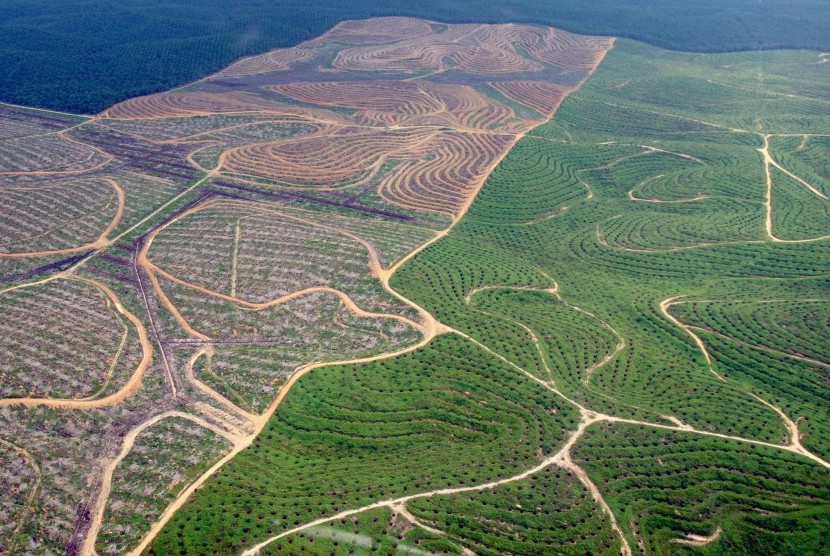REPUBLIKA.CO.ID, JAKARTA -- The European Parliament's Resolution on Palm Oil and Deforestation of Rainforests reflects a discriminative action against the palm oil sector, according to the Indonesian government.
According to the press statement from the Ministry of Foreign Affairs received here, Monday, the resolution, legitimized following a voting held during the Strasbourg plenary session on Apr 4, reflects a discriminative act that goes against the European Union's (EU's) stance as the champion of open rules based on free and fair trade.
The Indonesian government believed that the formation of the EU resolution was based on inaccurate and unaccountable data and information regarding the growth of the palm oil sector and the management of rainforests in palm oil producing countries, including Indonesia.
The resolution had also failed to recognize the multi-stakeholder approach, the press release stated.
The government then stressed that palm oil plantations were not the main cause of deforestation.
Based on the European Commission's study in 2014, globally, a total of 239 million hectares of rainforests had suffered from deforestation in the last two decades, 58 million of which was caused by livestock grazing, 13 million due to the planting of soy, eight million due to corn fields, and six million from palm oil plantations.
Based on the data, it is apparent that the world's palm oil plantations only contribute a mere 2.5 percent to the global deforestation rate.
Palm oil has even been lauded as one of the solutions to reducing green house emissions and positively contributing to the global demand for biofuel, which continues to rise.
It is, by far, the most productive vegetable oil in terms of the land area to production ratio.
Hence, the Indonesian government believed that the single certification scheme proposed in the European Parliament Resolution has the potential to increase unnecessary barriers for trade and can be counterproductive to the efforts to increase the quality of sustainable palm oil, the statement stressed.
Indonesia has been applying the Indonesian Sustainable Palm Oil scheme, which is a mandatory certification system, focused on the protection and maintenance of the environment, which is why the recommendation to apply phasing out on the use of palm oil in the EU Resolution is viewed as a protectionist act.
"It is rather odd that the resolution recommends the promotion of grapeseed and sunflower oil, which according to the data, is not any better than palm oil," the statement noted.
The government also believed that the resolution sidelines the rights of small-scale palm oil farmers.
Some 16 million people depend on the palm oil sector for their livelihood, both directly and indirectly. Some 41 percent of the palm oil products are produced by small-scale farmers in villages.
"The resolution also neglects the serious efforts that have been made by the Indonesian government and several stakeholders in maintaining a balance between national development and environment protection, which include the moratorium on palm oil field expansions; collaborative schemes between the government, private sector, and the community to restore peatlands; and sustainable management practices in maintaining the palm oil sector," the Foreign Ministry's press statement said.


